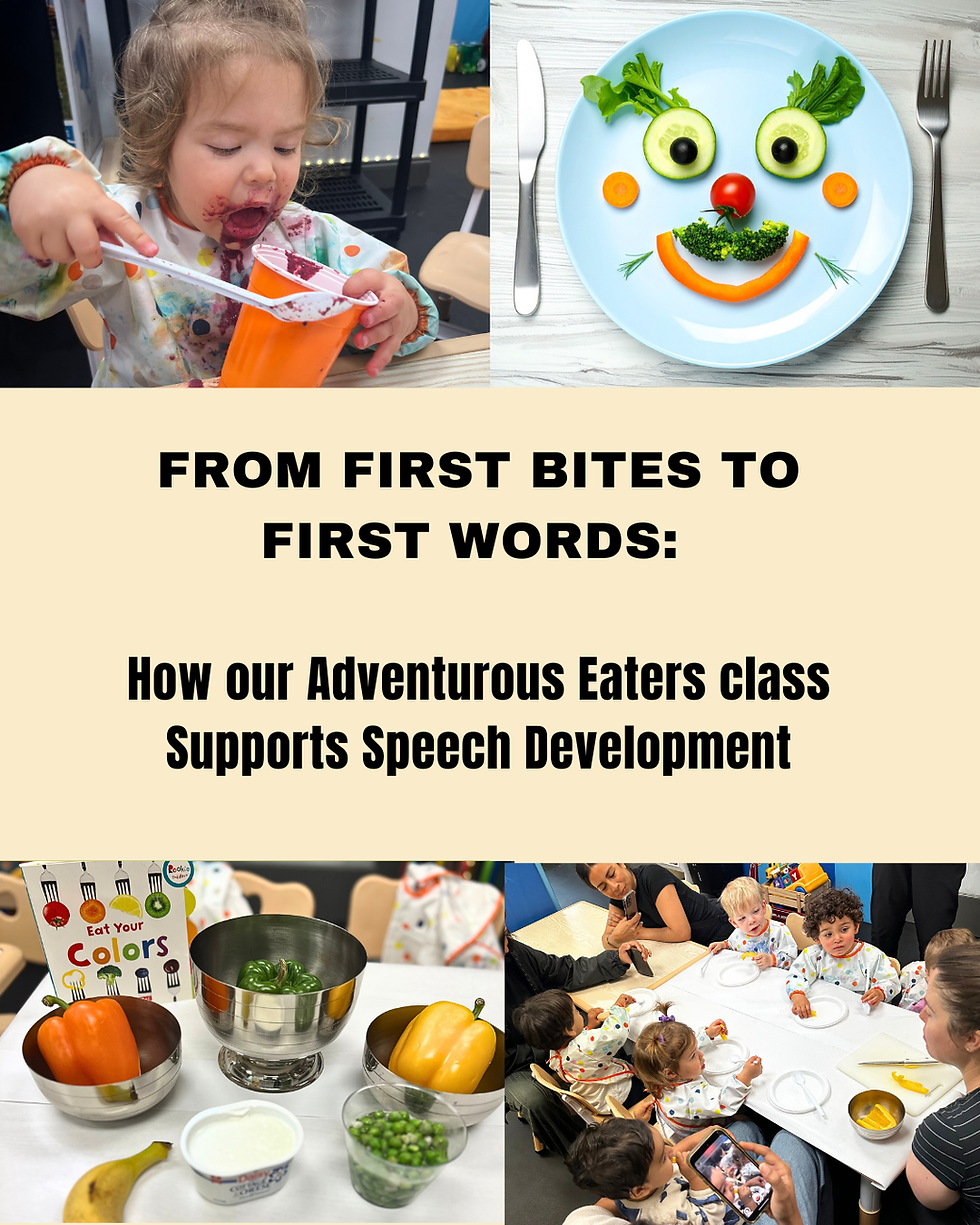Embarking on a Journey of Taste: Compass’s Adventurous Eaters Class for Oral Sensory Development
- Jordanna Spaulding

- May 20, 2025
- 3 min read

Toddlers are natural explorers, and at 12 to 30 months, their bodies and brains are primed to learn through the senses. Among the most important (and often overlooked) is oral sensory exploration—the way children experience textures, flavors, temperatures, and aromas. These early experiences shape not only food preferences and eating habits, but also speech, coordination, and confidence at the table.
That’s why Compass created the Adventurous Eaters Class: a joyful, guided experience designed to help toddlers discover the full spectrum of tastes and textures—from crispy crunches to velvety creams, and from bright tarts to gentle blends—in a fun, low-pressure environment built for sensory play and learning.
Why Oral Sensory Development Matters
Before a child can say “yummy,” their mouth needs to learn how to interpret a rainbow of sensations. Oral sensory development supports three key areas of growth:
Chewing & Swallowing Skills: Exposure to a variety of textures helps strengthen jaw muscles and refine coordination.
Flavor Tolerance: Introducing sweet, sour, bitter, salty, and umami flavors early increases openness to new foods and reduces picky eating later on.
Speech Readiness: Manipulating different food shapes and consistencies exercises the same muscles used for forming sounds and words.
At Compass, we know these milestones don’t happen overnight. That’s why each class focuses on exploration, not consumption. There’s no pressure to eat—just opportunities to touch, smell, lick, squish, or play. Whether a toddler dips a finger into yogurt, stacks green beans, or rolls a cherry tomato across the table, they’re engaging in meaningful sensory learning.
These small moments build trust and curiosity, the foundations for adventurous eating as children grow.
Who It’s For
The Adventurous Eaters Class is ideal for toddlers aged 12 to 30 months, a key developmental window when children are:
Mastering the pincer grasp and able to self-feed small pieces (like soft veggie cubes or cooked grains)
Transitioning from purees to textured and solid foods
Showing curiosity about new tastes but still needing gentle guidance and encouragement
Our small-group format ensures that every child gets hands-on support, and every experience can be tailored to their pace.
Parent Participation & Takeaways
Parents and caregivers are active participants in every session, learning how to support oral sensory development at home. Together with your child, you’ll gain:
A better understanding of how to respond to gagging, food refusal, and sensory sensitivities
Tips for choosing appropriate feeding gear and adapting your family’s meals for toddler-friendly textures
Tools to build confidence and patience at the table
After each class, families receive a personalized Food Exploration Report, which includes notes on what your child tried, their reactions, and expert tips for follow-up at home. These insights help track progress, reinforce successes, and celebrate every tiny taste.
Why It Matters
Oral sensory development isn’t just about what toddlers eat—it’s about how they learn to eat. Children who are regularly exposed to a wide range of flavors and textures are more likely to:
Build strong oral motor skills
Reduce feeding challenges and aversions
Embrace a more varied, balanced diet as they grow
At Compass, we believe mealtime should be joyful, messy, and full of wonder. The Adventurous Eaters Class isn’t just a class—it’s a celebration of discovery, one delightful bite at a time.
Ready to begin your toddler’s sensory food journey?
Join us for the next session of Compass’s Adventurous Eaters Class and watch your little one explore the world—one playful taste at a time.





Comments